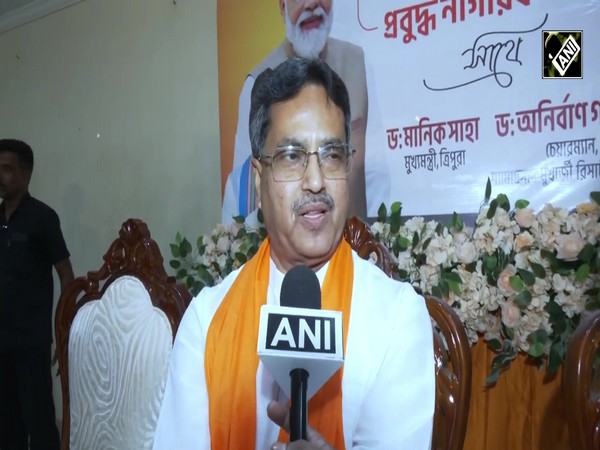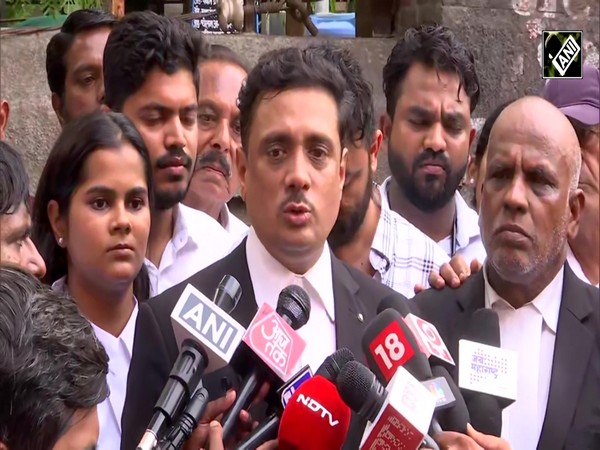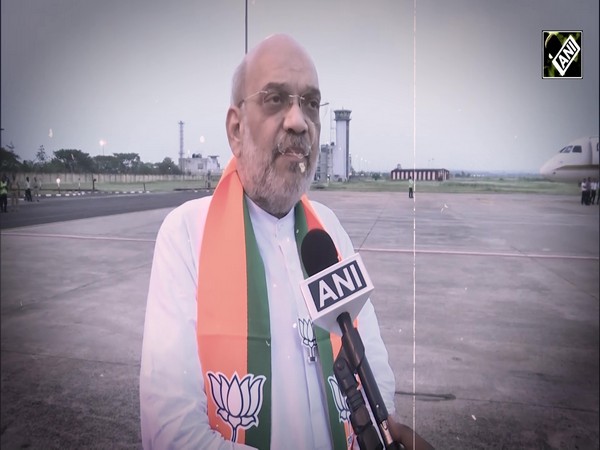Israel avoids snap elections, as the Knesset approves the budget with razor-thin majority
Nov 08, 2021

By John Solomou
Nicosia [Cyprus], November 8 : In a marathon session the Knesset (the Israeli Parliament) approved in the early hours on Thursday with a razor-thin majority of 61 in favor to 59 against Israel's budget for 2021, avoiding in this way a fifth election in three years.
If the motley 8-party coalition government of Prime Minister Naftali Bennett had not managed to have the budget approved by November 14, it would have to step down and former Prime Minister Benjamin Netanyahu would have an opportunity to return to power.
In a tweet, Naftali Bennett wrote: "It's a holiday for the state of Israel. After years of chaos, we formed a government. We overcame the delta coronavirus variant. And now, God willing, we have brought a budget to Israel."
He had every reason to be filled with joy as the future of his heterogeneous coalition government made of right-wing, centrist, leftists, liberal and Arab members of Knesset- which were basically united by their desire to end the 12- year continuous rule of Netanyahu- hanged in the balance. The coalition has survived its first major test and government stability is ensured at least for a while and now it will be much harder for the opposition to topple it.
The budget for 2021 is set at 432.5 billion shekels ($137.8 billion), rising to 452.5 billion ($145.4 billion) in 2022.
Many Israelis breathed a sigh of relief because a fifth election in three years has been avoided and the continuous period of political uncertainty and the stalemate existing since 2018 has ended at least for the time being.
Due to the absence of an approved budget, for the last three years Israel has been running with a pro-rated version of the 2019 budget, which created problems for the real economy and made long-term planning impossible.
Hours after the 2021 budget passed, lawmakers approved in a 61-to-57 vote a bundle of new laws and reforms in a corresponding economic plan - such as easing import barriers, a higher retirement age for women and streamlining government regulation. It also backed reforms on kosher certification that have outraged ultra-Orthodox lawmakers.
Something that is noteworthy is that the budget includes an estimated $16 billion to be spent on Israel's Arab society. This is the largest sum ever allocated for the needs of Israeli Arabs, who make up 20 percent of Israel's population, but have always been neglected and never given adequate funds for development or proper policing. This is attributed to the fact that the chairman of the Arab Raam party Mansour Abbas decided to join the coalition government and thus give it the necessary majority, even razor-thin in the Israeli Parliament.
The importance of budget approval by the Knesset must not be underestimated. In fact, it was a budget deadlock that brought about the collapse of the short-lived coalition led by Netanyahu and his alternate premier Benny Gantz. Likud leader Netanyahu had a power-sharing agreement with Gantz, head of the Blue and White party, according to which Netanyahu would remain Prime Minister for 18 months after which Gantz would replace him.
The wily Netanyahu in December 2020 did not even present a budget, in a political maneuver aimed at bringing down his own government and thus force an election, which he hoped would secure him and his right-wing allies an outright majority. But Netanyahu came up short in the elections held last March for the fourth time in two years, paving the way for Bennett and Yair Lapid to form a coalition government, with another six parties.
Netanyahu, who is on trial for fraud, breach of trust, and accepting bribes in three cases, together with his ultra-right-wing allies tried every trick in the book to frustrate the approval of the budget, promising the earth to coalition members of the Knesset, if they defected. As the governing coalition has the support of 61 members of the Knesset out of a total of 120, Netanyahu needed just one defector. In the end he was unable to find him.
From the time the coalition government got a vote of confidence in the Knesset last June, Netanyahu vowed to "topple this dangerous government and return to lead the country." He and his ultra-orthodox allies embarked on a campaign to delegitimize the government, accusing it of cooperating with Arab terrorists.
All these months Netanyahu kept launching scathing attacks on Bennett, who in the past was his protege, as well as on his political opponents, the media, the Police, and state institutions.
During the budget debate, Netanyahu's allies repeatedly heckled and interrupted Bennett and did everything possible to prevent the passing of the budget. A member of the Knesset from Netanyahu's Likud party called the Speaker of the Parliament "a floor rug" and was escorted out, while an ultra-Orthodox lawmaker was removed after meowing like a cat.
Netanyahu's speech on the budget was provocative, scornful and inflammatory. Referring to the allocation of funds to Israeli Arabs, he tried to present the government as a puppet of Mansour Abbas, leader of the Raam Arab party. He said: "Tens of billions of shekels have just been allocated for a single purpose: to appease Raam and Mansour Abbas. It turns out that he is the country's real prime minister."
Haaretz journalist Yossi Verter, writing about Netanyahu's speech at the opening of the Knesset budget session says: "It was petty, whiny, deceitful and inflammatory. The man who dragged the country to four elections in a row in an effort to wriggle out of his trial, and who prevented the country from having a budget for the same reason, had something to say about the "bad" budget. Like a pyromaniac who sets entire forests on fire, and when the firefighters arrive starts complaining about the length of the hose and the strength of the water pressure."



















